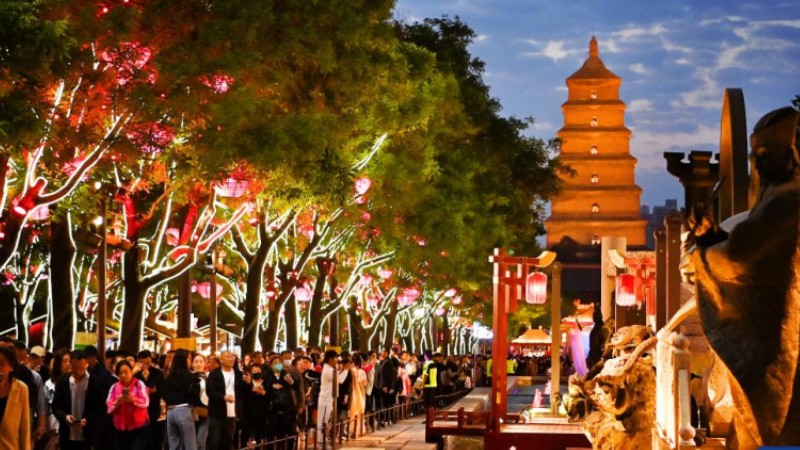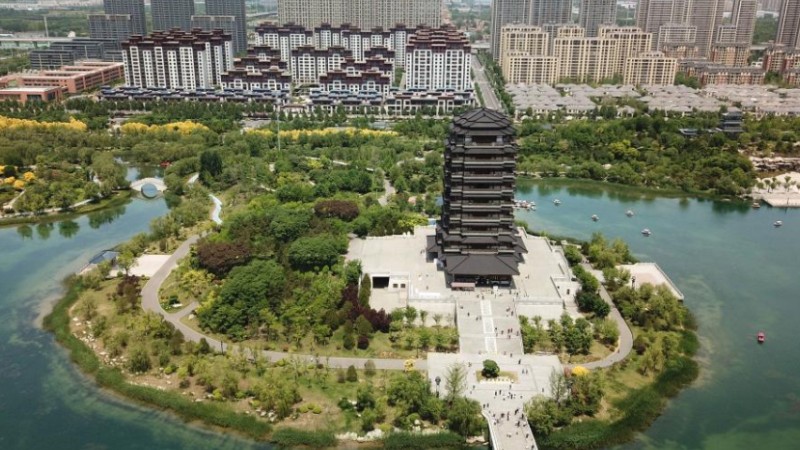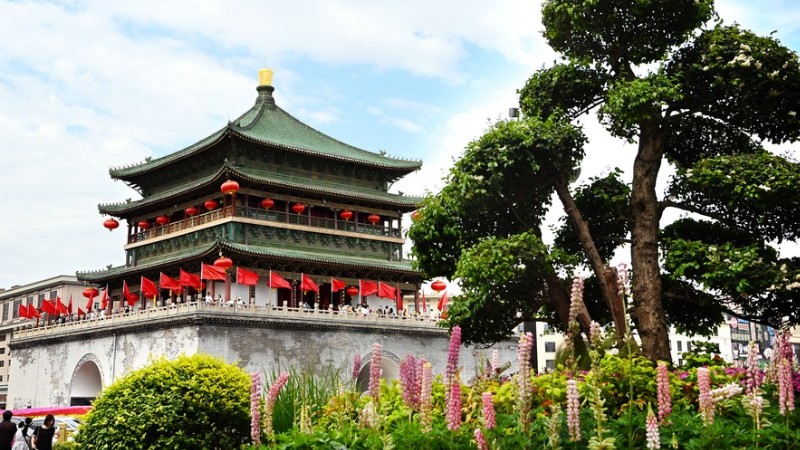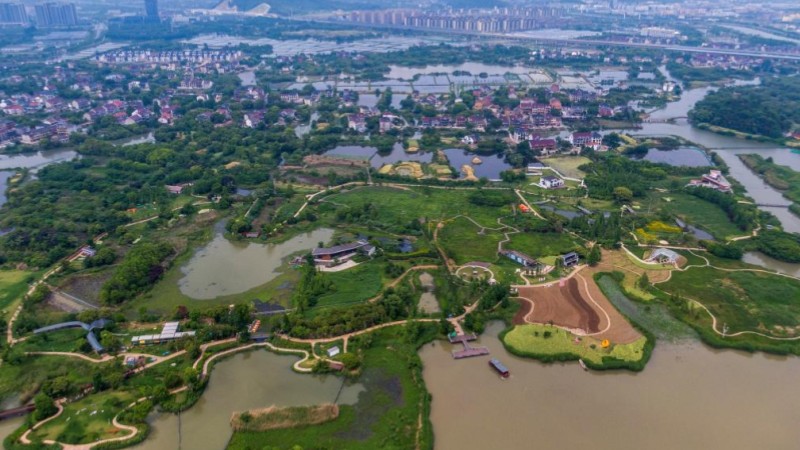Hidden sex trade, one of S. Korea's costs for its alliance with U.S.
SEOUL, May 14 (Xinhua) -- South Korea has made significant financial contributions for the presence of the American military on its territory, including costs for the stationing of the U.S. Forces Korea (USFK), procuring weapons from U.S. defense companies and, more recently, encouraging investment by South Korean companies in the U.S. mainland.
Another high cost has been the sex service to U.S. soldiers based there, which was justified directly and indirectly.
Some 120 South Korean women, who were victims of sexual exploitation in camp towns -- known as gijichon -- around U.S. military bases since the 1950s, have recently achieved a significant legal victory at home. However, their journey for justice is far from over as they seek acknowledgment and compensation from the U.S. government for the sexual exploitation they endured.
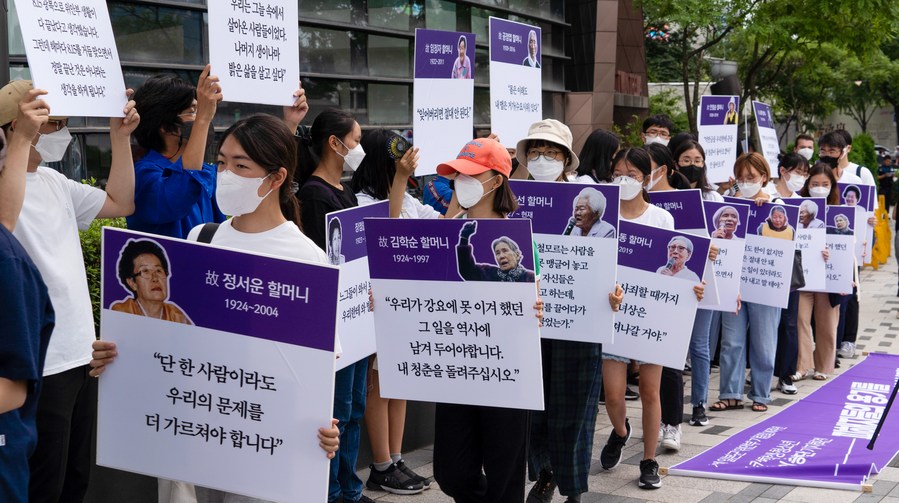
People hold portraits of "comfort women" and their testimonies during a protest rally held in Seoul, South Korea, Aug. 14, 2022. (Photo by James Lee/Xinhua)
SEX TRADE FOR MILITARY ALLIANCE
In September last year, the South Korean Supreme Court upheld the Seoul High Court's original ruling that ordered the government to compensate former gijichon sex workers and found it guilty of "encouraging and justifying" the sex trade to "intensify military alliance and acquire foreign currency."
"Above all, it was the first historical ruling recognizing the state's responsibility for the U.S. military 'comfort women' in the camp towns," Ahn-Kim Jeong-ae, co-representative of the Solidarity for USAFIK (United States Army Forces in Korea) Comfort Women's Human Rights, told Xinhua on Friday.
The lives of the women were "one aspect of the painful modern history of the Korean Peninsula that no one told you about," and were officially examined for the first time through the trial process, said Ahn-Kim, whose organization is made up of advocacy groups to support the victims and proceed with the lawsuit.
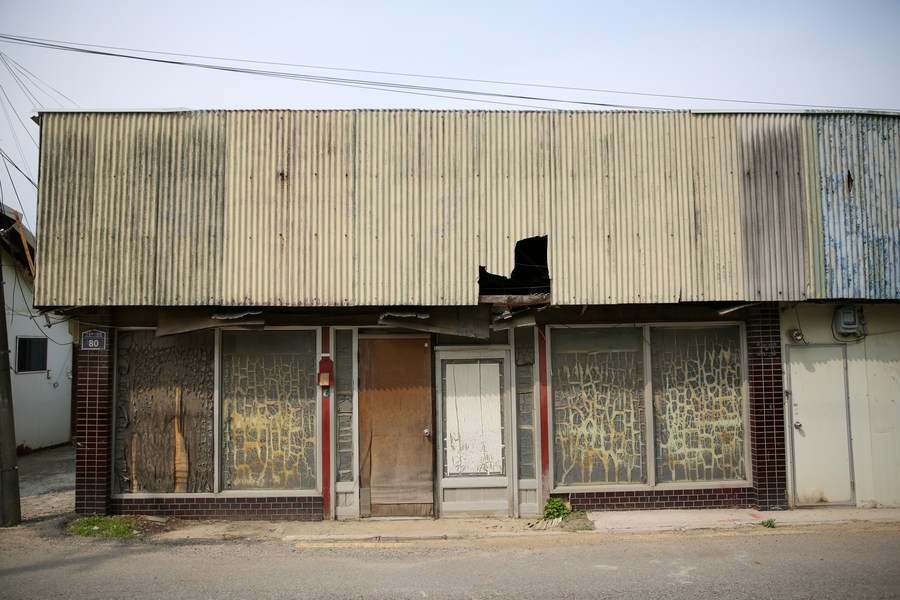
This photo taken on May 13, 2023 shows a deserted house in a camp town in Dongducheon, South Korea. (Xinhua/Wang Yiliang)
Since the 1950-53 Korean War ended in a truce, South Korea has prioritized its military alliance with the United States to ensure national security while urgently needing U.S. dollars for post-war rebuilding. Sexual exploitation became a means of meeting both ends.
"During the Korean War, the U.S. military proposed that the (South) Korean government establish 'comfort stations' for the exclusive use of (the U.S.-led) UN troops," wrote Park Jeong-mi, a sociology professor at Chungbuk National University, in a 2019 paper titled "Making Healthy Soldiers (and 'Comfort Women')."
In post-war years, "'comfort women' as a legal category remained, while 'comfort stations' gave way to clubs, bars and dance halls" in camp towns across the country, Park said. "USFK, wary of directly controlling 'comfort women' beyond its jurisdiction, chose to supervise the (South) Korean government, delegating to it the responsibility to round up, examine, and treat them."
In the 1970s, the South Korean government conducted a so-called "camp town clean-up campaign" to provide better "comfort women" service for American soldiers after former U.S. President Richard Nixon announced plans in 1969 to cut the number of U.S. troops in the Asian country.
Then chief of the Yongsan police station in central Seoul, where the U.S. army garrison was located, said in an official letter to "those engaged in the U.S. military service business" in June 1971 that some sex workers failed to please the U.S. soldiers. However, the chief "believes that you're doing the best service to the U.S. military so far."
According to court documents submitted as evidence, the police chief encouraged them to "reflect on and rectify" their mistakes, emphasizing that enemies could exploit such mistakes to undermine national security.
The high court said the camp towns were operated to "maintain the military alliance essential for national security" and acquire foreign currency by providing "friendly service" for U.S. soldiers and stirring up their "rationale."
Revenue from such "friendly service" was significant. In the 1960s, about 25 percent of the South Korean gross national product came from the sex trade and relevant businesses in camp towns, said Woo Soon-duk, director of the Sunlit Sisters' Center, an advocacy group for the gijichon women, in a 2019 article.
PRIORITIZING U.S. SOLDIERS
The camp town sex workers were praised as "dollar-earning patriots" when they took monthly classes sponsored by the South Korean government and the U.S. military to educate them about beauty, hygiene and simple English conversation, according to the court ruling.
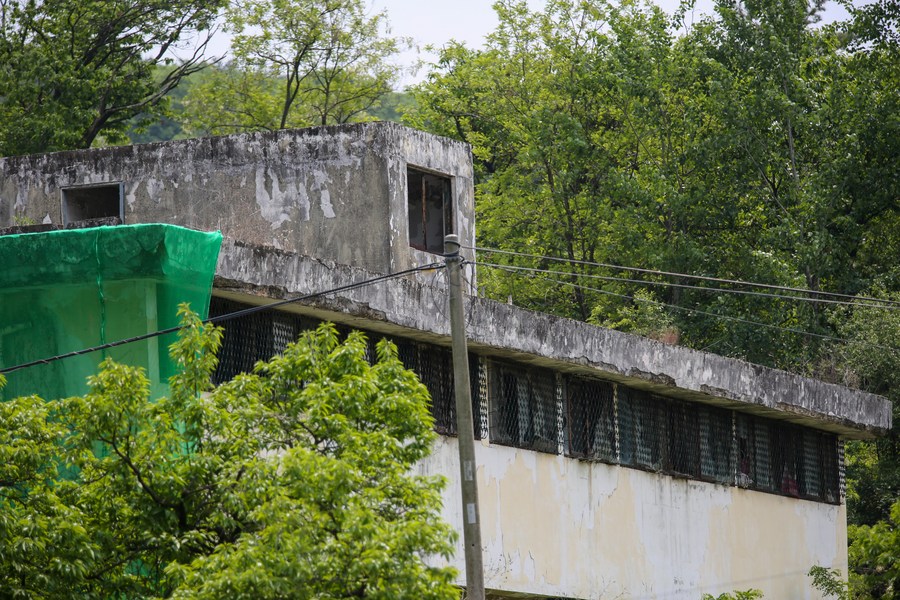
This photo taken on May 13, 2023 shows a partially-covered building called "monkey house" in Dongducheon, South Korea. (Xinhua/Wang Yiliang)
In mandatory classes attended by health center employees, police chiefs, county heads in South Korea and U.S. military medical unit officers, the educators emphasized the importance of conducting twice-weekly sexually transmitted diseases (STDs) testing for sex workers to safeguard U.S. soldiers.
"Praised as patriots, we made a lot of dollars ... Even if we suffered deadly pain, we didn't see any doctor but were only tested for STDs. The STD test was conducted for U.S. soldiers at the request of the U.S. military, not for us," said one of the plaintiffs at the court hearing.
Those testing positive for venereal diseases were detained and taken to medical treatment facilities called "monkey houses," where they received large doses of penicillin and suffered massive pain behind barred windows.
"U.S. soldiers from the U.S. military base administered the penicillin to the detained women," Park Su-mi, an activist of Durebang, a counseling center for the gijichon women, told Xinhua in a written interview, citing the testimony from one survivor who said many of her colleagues died from or were crippled by overdoses.
The activist noted that the survivors of penicillin shock continue to suffer from physical and mental trauma today.
As local doctors refrained from administering penicillin because of the frequent shock accidents, the South Korean health ministry sent a letter in February 1978 to prosecutors, asking them to investigate such cases cautiously and exempt the doctors who took emergency measures, according to the letter submitted to the court.
South Korean health center employees randomly conducted a joint crackdown with the U.S. military in the camp towns to "hunt down" women who avoided STD testing or lacked valid test cards.
In addition to the crackdown, detention and administration of penicillin without a doctor's diagnosis, the sex workers also had to endure beatings, forced abortions and having their money confiscated by both pimps and U.S. soldiers.
The pimps colluded with government officials and the police, who turned a blind eye and failed to investigate such crimes as murder, assault and confinement by U.S. soldiers, according to the plaintiffs.
"We were abandoned in this country where we were born ... Even though I was a teenager, no adult helped me ... I was so scared and hated this that when I ran away and asked for help, my whereabouts were told to pimps who beat me and sold me elsewhere after raising my debt," one of the plaintiffs told the court.

This photo taken on May 13, 2023 shows a partially-covered building called "monkey house" in Dongducheon, South Korea. (Xinhua/Wang Yiliang)
Ahn-Kim told Xinhua that the plaintiffs would bring their cases to the United States, calling the legal victory over the South Korean government a "small gift" to compensate the surviving victims for their longstanding suffering.
While preparing for the legal fight in the United States, the Solidarity has submitted a report on the issue of camp town sex workers to the UN Committee on the Elimination of Discrimination against Women, the co-head said.
"We are now planning to bring up that issue to the UN Human Rights Council to hold the United States accountable," she added.
Photos
Related Stories
- So-called "rules-based international order" reveals U.S. hegemony
- Mexican president denounces U.S. politicians' remarks on migration as "crude, smug politicking"
- As U.S. dollar risks losing dominance, investors need to diversify overseas: Globe and Mail
- U.S. deputy secretary of state announces retirement
- New York scrambles to handle influx of migrants as Title 42 expires
Copyright © 2023 People's Daily Online. All Rights Reserved.






